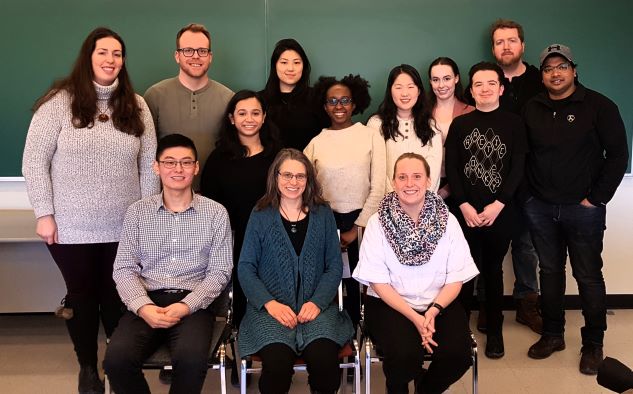And Now for Something Completely Different: My Sojourn as a Law Professor
April 2019

Advanced Refugee Law Class, University of Ottawa, Winter Semester 2019
For years, I have been reading a daily blog from The Attorney Marketing Center. I receive tips on marketing strategies and on issues related to practicing law, such as time management and work-life balance. Last spring, I received a post that encouraged lawyers to take on new challenges. It said:
That excitement you felt when everything was new was primarily based on fear. And that doesn’t exist anymore. If you want to breathe new life into your law practice, you need to get back to where you were when you were new.
I had this encouraging post in mind when I received an email asking if I would consider teaching the Advanced Refugee Law course at the University of Ottawa’s Faculty of Law for this winter’s semester. Though I practice refugee law, it is not my primary practice area. I would have to study the same materials I would give my students to read to ensure that my knowledge of the subject matter was current. I also needed to update the syllabus as the course hadn’t been offered in many years. I would have to create assignments and write the exam. I knew it would be a lot of work. I took a deep breath, swallowed my apprehension, and emailed my acceptance.
I determined that my students would be best served if I could bring in colleagues who specialized in specific areas of refugee law. I coerced the busiest appellate lawyer in the city to speak about judicial reviews. A member of a refugee advocacy group who is trying to have a law declared unconstitutional came in to talk about the case. A lawyer who works with vulnerable claimants did a mock interview of a ‘refugee claimant’. In all, a dozen of the best lawyers in the city agreed to come into my class to speak. I’ll admit I didn’t ‘teach’ the class as much as I facilitated it.
The final project for the class was a mock refugee hearing, in which each member of the class shared a role in the hearings process. The ‘judges’ made their decisions at the end, which was to accept the refugee claim. The Immigration and Refugee Board of Canada allowed us to use an actual hearing room, onsite at their facilities. It made the experience much more real for the students.
In the end, I think I learned as much as my students. But it was hard. I was out of the office two half-days a week for class, in additional to the half-day I spend most weeks with my privately sponsored refugees who are still orientating to life in Canada. My clients had to wait longer for me to get back to them, and for the month of March I couldn’t take on any new files, just so I could stay on top of my file work. I have a newfound respect for the work of professors.
I was asked to teach the class again next year. I respectfully declined. I sure will miss being addressed as ‘Professor Carey’! But when given the opportunity to take on a new challenge in the future, this positive experience will make me more confident to take on something that scares me a little.

